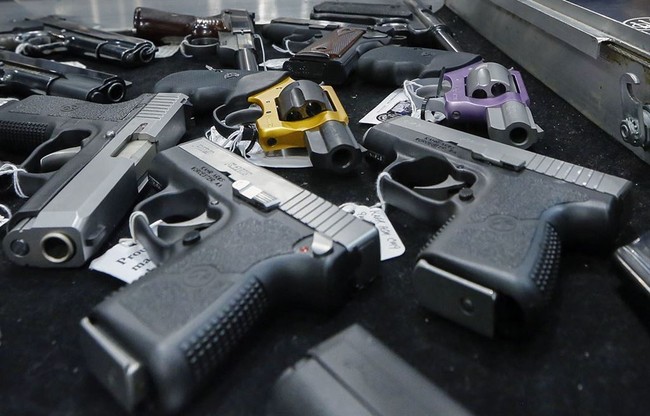But Twitter warned against a legal regime where “ordinary merchants could become liable for any misuse of their goods and services, no matter how attenuated their relationship with the wrongdoer.” As a general rule, someone who provides a good or service to all comers is not legally responsible if a bad actor uses their product for a wicked purpose. If Ford sells a truck to a man who intentionally uses it to run over and kill his wife, Ford normally will not be responsible for this homicide.

I don’t expect a lot from Vox. I’d like to, but that’s because I’m annoyingly optimistic about things in general. I say “annoyingly” because it annoys me how optimistic I am much of the time, in part because so many people let me down.
Advertisement
Take Vox, for example. Please. Seriously, please.
No takers? Not surprising.
Anyway, Vox…
It’s unsurprising that they wrote a piece on the Mexican lawsuit against Smith & Wesson. It’s not surprising they’re displeased by the result. It’s also unsurprising that they were idiotic in their writing about it.
But Kagan’s opinion concludes that the mere fact that US gun companies likely knew that some of their guns were being resold in the illegal market, much less that some of their guns are designed to appeal to Mexicans, is not enough to overcome PLCAA. As Kagan explains, this conclusion largely flows from the Court’s fairly recent decision in Twitter v. Taamneh (2023).
Twitter concerned an attack by the terrorist group ISIS that killed 39 people at a nightclub in Istanbul, including a man with American relatives. Those relatives sued several social media companies in US court, claiming that the companies aided and abetted the Istanbul attack by allowing ISIS to post content which promotes ISIS’s ideology and that attempts to recruit people to the terrorist organization’s cause.
And so Kagan concludes that it’s not enough for Mexico to show that gunmakers could have taken additional steps to prevent their products from winding up in the hands of drug cartels. Instead, “the merchant becomes liable only if, beyond providing the good on the open market, he takes steps to ‘promote’ the resulting crime and ‘make it his own.’”
Of course, one thing that distinguishes Smith & Wesson from Twitter is that social media platforms are not weapons whose entire purpose is to injure people. If PLCAA did not exist, Mexico might have argued that the gun companies’ decision to make and sell an inherently dangerous product should make them liable for the consequences of selling such a product.
Advertisement
The author does acknowledge that the PLCAA does exist, but that’s kind of beside the point.
See, the Twitter decision is still applicable, if for no other reason than the fact that the product is still sold for lawful purposes. That’s not even touching on the nonsense claim that “weapons…entire purpose is to injure people.” Hunting rifles are intended to kill animals, for example, and many people really don’t expect to ever shoot a person, but buy guns because they love the act of shooting. It’s something of a martial art in and of itself.
But getting back to the Twitter decision, the point is that a company that creates a product that’s intended for lawful use cannot be held liable because someone does something unlawful with it.
Even without the PLCAA’s existence, Mexico could try to make the claim, but the Twitter decision still stands. Its legal reasoning is still a thing. The idea that you could or should hold a company responsible for making products designed for lawful purposes that later get misused by other parties is asinine.
It was always asinine.
I wasn’t always a pro-gun guy. I liked guns as a much younger man, but I was pretty liberal in my beliefs back then. Even at the time, I thought the idea of holding gun companies responsible for what third parties did with the firearms they made was ridiculous. Nothing has changed on that front in the last 40 years or so.
Advertisement
Not that anyone who is writing on gun-related issues at Vox has a damn clue on any of that. They’re too absorbed in their “guns are bad” thinking to ever comprehend how mentally deficient their animosity toward firearms actually is.

